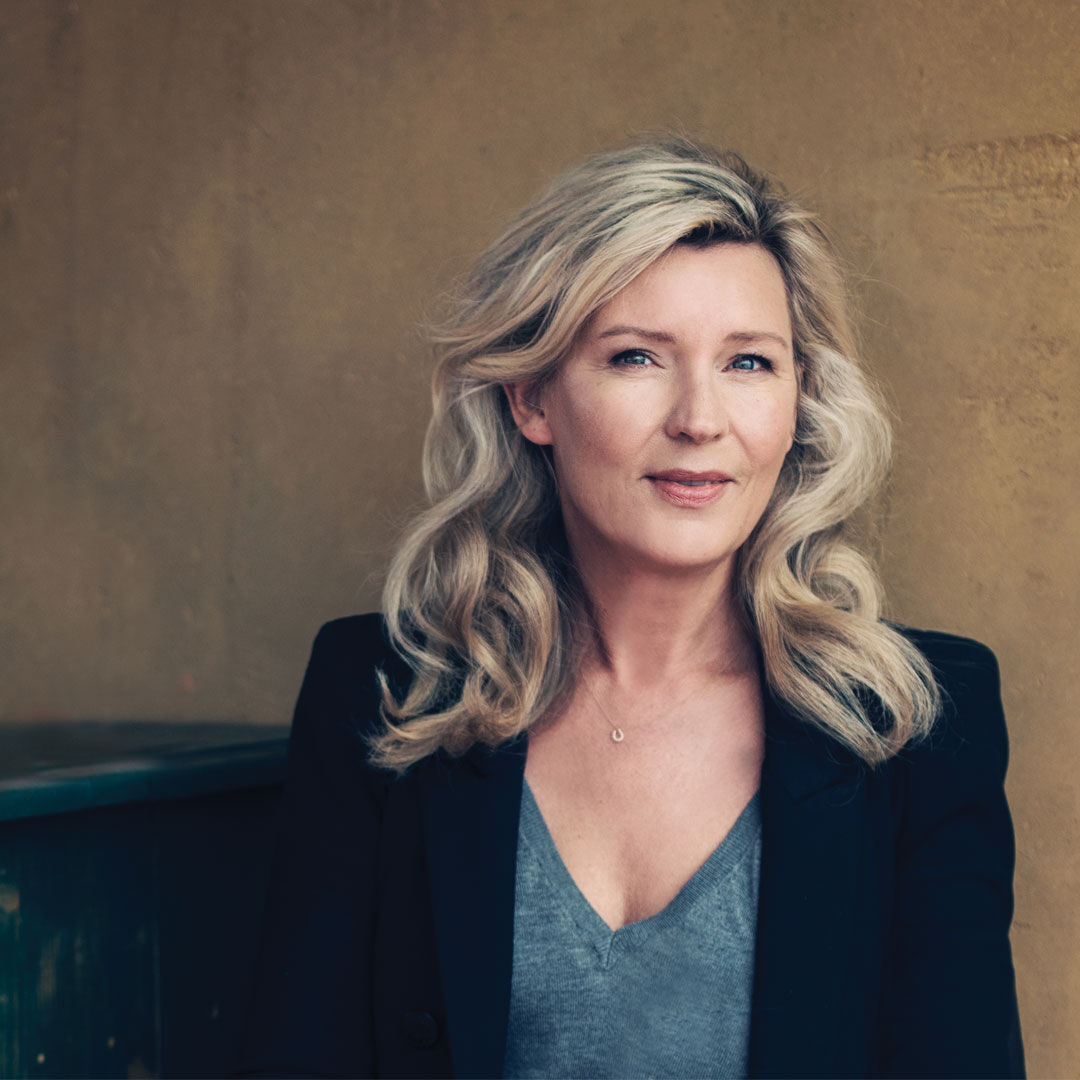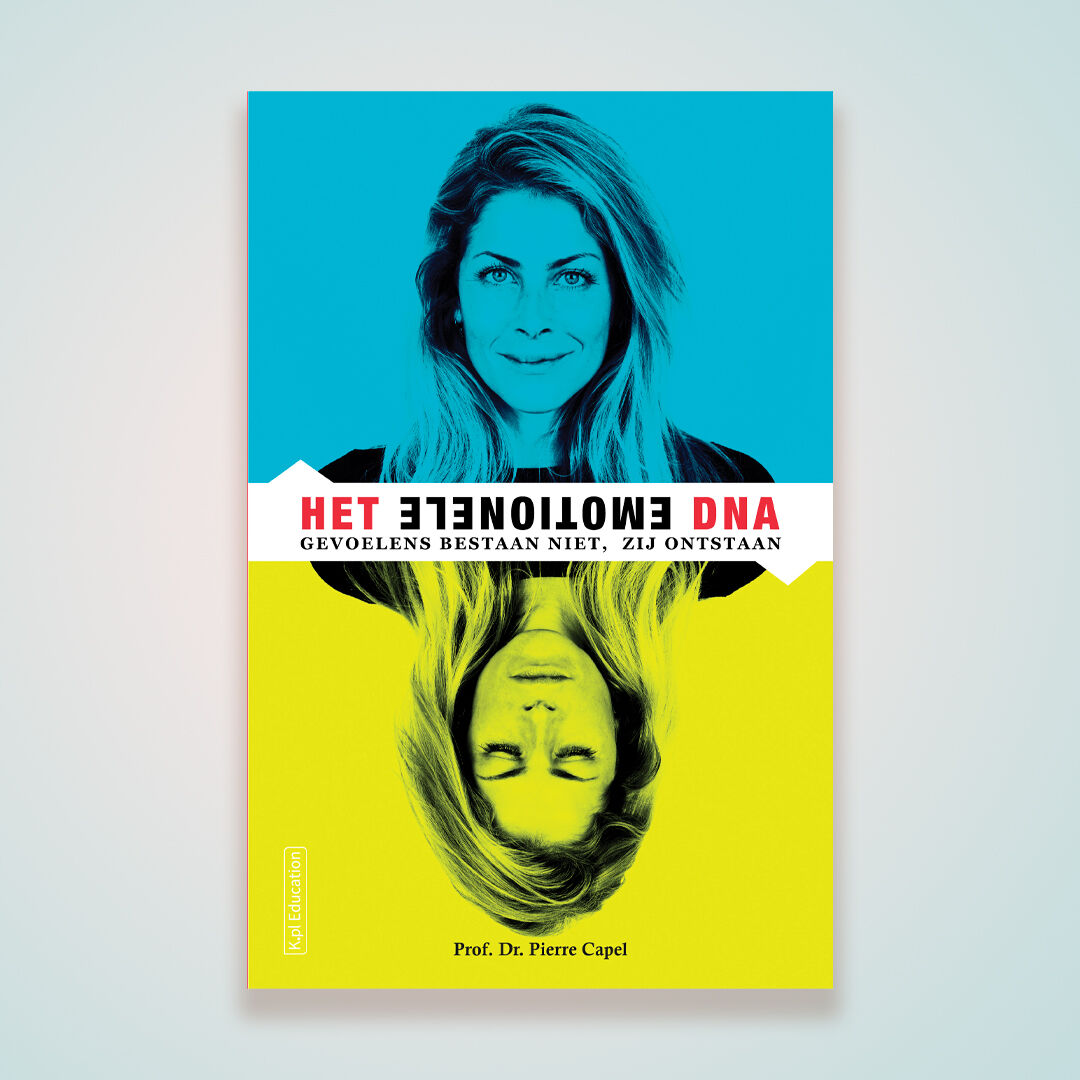The shadow of our smiles
Murder, she wrote. And very successfully! But in her brave writings, bestselling author Saskia Noort – aka ‘the Dutch Queen of Suspense’ – goes beyond murder. Giving a voice to female fear and shame, she dares to touch on subjects such as sexual violence and victim blaming. “A lot of people say: ooh, I could never kill anyone! But have you ever been beside yourself with anger?”
Marlies: You have sold over 3 million copies of your books and the majority of your readers are women. Many polls have shown: ‘mystery and crime’ is the genre most read by women. Why do you think that is?
Saskia: English thriller author Ruth Rendell once suggested that women have a fascination with crime- and horror movies because they want to be prepared. Just think about it: most of the time, we live in fear. Unlike men, who tend to rely on physical strength when they feel threatened, women try to find power in knowledge. We rely on our brains. I believe there is definitely an element of self-preservation in our love for that genre.
Marlies: Like Agatha Christie, your thrillers are as much ‘whydunnits’ as ‘whodunnits’; you really focus on the psychological aspects of crime. Through your writing, you enable the reader to live in the skin of the characters, even the murderers…
Saskia: To me, professional criminals assassinating each other is so much less interesting than what drives a ‘normal’ person to kill someone. The murders in my books are often unplanned; explosions of anger that has been building up under the surface. A lot of people say: ooh, I could never kill anyone! But have you ever been beside yourself with anger? Like, truly enraged? A fatal blow happens more easily than you think. I don’t really have a temper myself, but if someone would harm my children, I think I could not be held accountable for my actions.
Marlies: Me neither! You just mentioned women living in fear most of the time. I believe that fear and anger are closely related, and I see that in our society, women are not allowed to express these emotions. The only accepted expression is a polite smile.
Saskia: So true. Bottled-up anger leads to aggression and eventually even murder, but if a woman dares to show her anger once, she is forever labelled ‘that angry woman’. I remember being told during media training: “Whatever people talk about during a tv interview, smile. If the other guest mentions having murdered 16 children, smile. Just keep smiling.”< p>
Marlies: That is why, the first time I saw climate activist Greta Thunberg speak, I was deeply moved. There was no forced smile, just a raw message from the heart. And I said to myself: “So this is what a woman looks like when she expresses her emotions unfiltered!” People called her ‘ugly’ and ‘hysterical’, but she was a revelation to me. I really hope that one day, women are allowed to do more than just look pretty and smile.
Saskia: Yes! And then, when they do smile, we will know it’s genuine.
Marlies: You give a voice to women’s fear and anger, not only in your novels, but also in your columns. A while ago, you wrote a very impactful column about your personal experience with sexual violence, describing how you were raped at 14 by your neighbor. That must have taken a lot of courage.
Saskia: We talk about men silencing women, but the repression is so deeply engrained that when I was raped, I silenced and censored myself. I stayed silent for 35 years and all that time, I felt powerless. I think that is perhaps the worst part of sexual abuse: the total humiliation, resulting in paralyzing shame and self-doubt. You have thoughts like: “Maybe I made parts of it up.” Or: “I must have asked for it because I wore a short skirt.”< p>
Marlies: That’s how abusers keep their power: by brainwashing victims into believing they are the criminals.
Saskia: Yes, and one of the reasons I wrote my column was to break that chain. As a writer and public figure, I was afraid that if I came out and told my story, I would forever be ‘that woman who got raped’. But as soon as I received letters from women thanking me for giving them a voice, women who had been silenced for years, I knew it was all worth it.
Marlies: You and I were both born in the late 1960s. For our generation, ‘victim’ was a dirty word. It implied ‘weakness’ and we needed to be strong to fight patriarchy and build our careers. No complaining allowed. But #metoo really opened up the floodgates, and I’ve actually had to check if I had suppressed any memories of sexual abuse. Not just as a victim, but also as an offender!
Saskia: My son, who is rather good looking, told me the other day: “Every weekend when I go out, I get felt up, sometimes even literally grabbed by the dick, by women who are mostly your age.”
Marlies: I have never done that.
Saskia: Me neither. He said to me: “Oh, I just laugh it off.” And I told him that it was a male privilege to laugh at such things. Because a man knows that physically, with one move, he can make a woman stop. But when a woman gets groped by six men in the corner of a club, she feels in every cell of her body that she is in danger. And she is certainly not laughing.
Marlies: Where do you see yourself in 30 years? Will you still be using your voice?
Saskia: If my health permits, I would love to be the voice of my generation still. A bit like Jane Fonda, getting dragged from demonstrations every week, in handcuffs and a fabulous red coat.
Marlies: Wonderful! That thought makes me smile, Saskia. Genuinely.
Stay up to date with Saskia’s books, and quest to help giving women their voice, at www.saskianoort.com
MD Friends
Building bridges
From the Erasmus Bridge and the Mercedes-Benz Museum to Qatar’s metro network; Ben van Berkel’s iconic landmarks bring people together in rapturous beauty, again and again. I talked with the Dutch architect and educator about sensuality, ‘healthy’ buildings and the remarkable parallels between our designs.
MD Friends
More than a feeling
Don’t ignore your emotions; they are much more powerful than you can imagine. By linking the magical world of emotions with hard science, Dutch scientist Pierre Capel, professor emeritus in experimental immunology, shows us the consequences of our feelings and the power of our minds. The message: we can do much more than we think. “Meditate. It’s the single best thing you can do for your health.”
Marlies Says
Keto curious?
The fact that I feel bikini-confident all year round is, of course, a nice bonus. But for me, the biggest payoff of following the keto diet is the way it optimizes my health and gives me tons of energy.
Marlies Says
Super (skin) food
‘If you can’t eat it, why put it on your skin?’. I pretty much live by this beauty adage. After all, with your skin being one of your body’s largest organs, anything – and I mean anything! – you put onto your skin will end up in your bloodstream.











